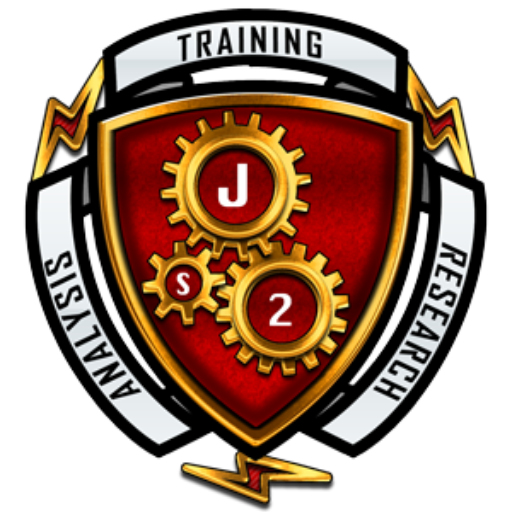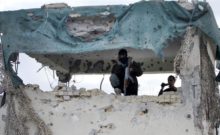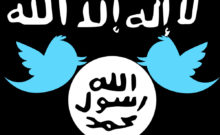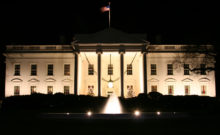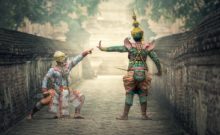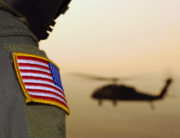It is the fifteenth anniversary of one of the most tragic days this country has ever faced. And as with all tragic events, the impact of this monumental terrorist attack on the United States’ homeland has become quite diluted with time. Everyone knows the history of this day. Everyone knows the story of how it happened and what happened afterwards. Everyone knows how terrifying it was… That is “everyone,” except those who were too young or not there at all.
It was early on the West Coast. The sun had barely risen when my dad put me in his truck to ride to my grandparents’ house. I’d had a fever all night, so I was already staying home from school. He put on talk radio, and I was too weak to complain about it for once. At some point I realized, even at that young age, that my dad had grown tense. When I looked up at him, he looked scared. His hand reached for the volume, and the dreaded talk radio got even louder. But I didn’t complain. Something was terribly wrong.
We walked into my grandparents’ house a few minutes later to find most of my dad’s siblings and his parents standing in front of their big screen TV. Everyone’s mouths were agape. Just then, the second plane hit the south tower. I was too young to know what the World Trade Center was, where it was, or why this was so scary. But I was terrified. I had never seen so many adults so afraid.
Everyone Has a Story…
If you ask anyone who was alive during 9/11 and old enough to remember it, they will all tell you a similar story. Almost everyone knows where they were, what they were doing and how they felt. I had the honor of collecting a few such stories from people who were my age on that day as well as some of those who were a little older. The responses all had a few things in common.
Lisa Kath, an associate professor at San Diego State University, told me, “I remember feeling just stunned, because it was so out of the realm of imagination for me. Things like that just didn’t happen.” It’s the same phrase I’ve heard dozens of other times, “It just doesn’t happen,” until it does. Even those who were younger on September 11, 2001 felt the “rug swept out from under” them.
“At some point, someone said something I will never forget… ‘Are we under attack?’ It was the first time I had ever felt unsafe in my own home. ‘Do we know who did it yet?’ ‘What do we do?’ They were all probably comments made by millions of people across the country that morning, but hearing those things said by your parents at such an impressionable age left me and my generation with a unique perspective. Our world became a whole lot darker and scarier in a few short minutes. Looking back now, I believe it shaped my outlook on the world as a whole.” – Charles Yates, 25, Mechanical Engineer.
The events of that day were more than just catastrophic and terrifying. They were the events that shaped a whole generation of Americans, just as Pearl Harbor and the assassination of John F. Kennedy did for the generations before us. Of all the people I interviewed, Ariel Hanie, 24, U.S. Navy, was probably the most overtly affected by the events of 9/11 without being anywhere near the event itself:
“I remember not being able to speak then, because at 9 years old, you don’t see that kind of thing. I only called out to my mom when I saw the first tower fall and I was all alone in our living room. Her face when she ran out put the whole thing in to perspective for my little brain. My mom has been through enough to hide her fear most of the time, but she was scared and so was I… I was too young then to have learned about Pearl Harbor, so this idea was very new and terrifying… They called my dad into the Fire Station and put his EMS company on tactical alert and I watched my mom cry on the phone telling him she didn’t want him to go to NYC… in an all EMS/Fire family, we know how dangerous search and rescue is after a mass casualty incident like this one.
Since then, I have always wanted to do something bigger than myself. I joined the fire academy and became an EMT, and at 20 years old I joined the Navy. As a member of the US Navy, I feel very strongly about the mission we face out on deployment… I’ve seen Iranian fighter jets, fly over our carrier and had to launch out our own jets to track it down and felt so relieved when our bird came back. And I’ve seen many targets destroyed by some brave pilots who believe the same thing I have for as long as i can remember- I’d rather have them fighting in the desert over there than see anything like I saw on 9/11.
It could even be as simple as the idea that from across the world, a group of people I had never met managed to ruin my tenth birthday by putting everyone in a state of fear. The State of Fear was like an electricity everywhere we went, and spread like a mushroom cloud all the way to California. What matters to me is that one day the world was one way, and the next, everything was different.
I have a 5 year old son now who I was apart from for 22 out of 48 months of active duty service. And, while it hurt to be away for all that time, I wouldn’t hesitate to deploy again if it meant that things like that wouldn’t happen again. I don’t want my kid to wake up one day and see anything like what i saw that year. Someday I’ll have to tell him everything when he asks about it because he read it in a history book, and knowing that I can’t promise he will never see anything like that is why I made the choices I did.” – Ariel Hanie, 24, U.S. Navy.
Not All Stories Are the Same…
A story like Ariel’s is not hard to come by, but it’s not representative of this entire age group. There are those who were much less affected and much less connected to the events of 9/11. Megan Childs was 10 years old that day, eagerly awaiting her 11th birthday the following morning:
“From my 5th grader perspective, it didn’t quite resonate with me at first. Later on the magnitude of it sunk in a bit more for me. In the present, I still feel that it was a very unfortunate event and that I hope something like that doesn’t happen again. But it doesn’t affect me in a deep way every time the anniversary for this day in history comes up.” – Megan Childs, 25.
All of these interviews were with individuals who lived on the West Coast at the time. Each person was affected in a different way, and each had a varying perspective. The difference between those who remember it vividly and those who barely remember it all is what struck me. How could people the same age, from the same side of the country, view the attack so differently? Could it have been in the way it was presented to us all? Could it have been in the way those around us reacted?
So What Do We Tell Our Children?
It’s recently come to my attention that the younger generation is very disconnected from 9/11. I wondered why. Was it more than just the lack of the experience? So I asked a few of them what they knew about it.
Most kids between the ages of 8 and 13 that I spoke to had very little knowledge of the events on 9/11. They generally all said the same thing, it made them sad because so many people died. Yet, not many could pin point how it affected their lives and how it had changed the country. Some of them didn’t know what had happened at all.
One exception was Eli, 10:
“It makes me feel sad that all those people died and lost their lives. I also feel proud for our country for trying to get stronger and having fireman and policeman and medics come in, even though they knew the tower would collapse. I also feel better because the airports are more secure now, so it’s harder to get things to the airports, so they’re not as dangerous.
The airports have changed a lot since then and we work together now to help stop terrorism. But there’s still kind of a war going on in different places with terrorists, like Syria has had a lot of things. But right now America is fine because we have better airport and security policies. We’ve been more careful.” Eli, 10.
Carly, 15, also had a more in depth understanding of the situation:
“I don’t really remember how I heard about it. I was in elementary school though I think, and they were talking about it on the announcements. And I didn’t really know what it was, so I think I asked my mom about it. I remember her telling me it was really scary. I felt bad because I didn’t know what had happened.
I’ve gone to the memorials in New York a few times though. Reading people’s stories and what exactly happened made it 10x more real. It’s so devastating that so many lives were lost and the worst thing is that things like that can happen. Everybody thought it was just a normal day and something so terrible occurred.” – Carly, 15.

The Diluted Past
It’s normal for the emotional impact of historical events to fade over time. The question is, where is the line between a fading memory and a neglected history? Even for Megan, who was alive at the time of the event, its significance was lost. The norm has become to acknowledge the day, say a few words and move on. Is that enough? Why is fire and forget the standard of relating these events to our children?
“Memory is what defines us as human beings… When a society loses its memory, it’s catastrophic, I believe, in terms of what holds us together.” –Brent Glass, Former director national museum of American history.
What is the media’s role in perpetuating the problem? People are bombarded with mixed information about the events of 9/11. They hear everything from the timeline of events to how the whole thing was a hoax. Conspiracy theories fly left and right amid celebrity gossip and the latest technological releases. A ridiculous amount of information sinks in and the information overload has caused an entire generation to largely ignore the event that has shaped the world they live in today.
The attention of today’s society is only held for a short time. Unless a collective effort is made by the masses, most people will remain unaware about the hot topic of the year, month, week or day. It seems like the youth and most Americans have a desire to live vicariously through the reality TV shows that influence the public option of today’s youth instead of in the real world.
Most people don’t know what to do when tragedy strikes, so instead they ignore it until it directly affects them. What’s important does not seem to be heard in the mist of the political, celebrity and general gossip and mellow drama that floats around our media outlets.
The events of 9/11 still incite fear in those who witnessed it. And yet, our youth have no reaction to this fear or the fear of more recent terrorist attacks globally. It begs the question, “How are terrorist attacks affecting our youth?” Further academic study needs to take place comparing the events of 9/11 to things like the Boston Bombing and the attacks in France, Germany, and the rest of the world. It’s critical to identify the impact over time and the elements of cause and effect for these kinds of events.
The unity that America felt following 9/11 quickly faded. But there are those who still remember and will never forget.
“It still makes me fearful to this day, but I feel a tremendous amount of pride at the solidarity we felt in the years following September 11, 2001. I think it is important to reflect on that this year especially, as I believe we have forgotten it and we are so divided in our search for the next president.” – Charles Yates.
Share your story in the comments below. Join our effort to Never Forget.
